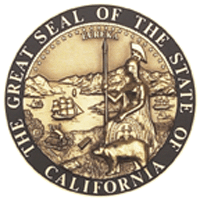

Transfer a Vehicle Between Family Members
What Does Transfer Mean ?
When the Department of Motor Vehicles (DMV) talks about "transfer," we mean a change in the registered or legal ownership of a California registered vehicle. When a vehicle changes owners, whether by sale, gift, inheritance, etc.. and the new owner�s name is placed on the department�s records, that�s a transfer.
For example, when you sell a car:
1. You and the legal owner/lien holder (the person, bank, credit union, etc., that financed the vehicle) if any, release interest! ownership of the vehicle by signing the Certificate of Title.
2. The new owner completes and signs the Application for Transfer by New Owner on the back of the Certificate of Title.
3. The signed title and any other required documents are submitted to DMV for transfer of ownership into the new owner s name.
4. Following completion of the transfer, DMV will issue a new Certificate of Title to the new owner's) or if there is a lien, to the lien holder.
Are Transfer Requirements Different Between Family Members?
Yes, substantially different. This brochure outlines the differences between a regular transfer and a family member transfer.
What is a family member transfer?
A "family transfer" is when ownership is transferred to or from a:� spouse
� parent
� child
� grandparent
� grandchild
� sibling
How Is a Family Member Transfer Different from a Regular Transfer?
There are three primary differences between regular transfers and family member transfers:
1. On a regular transfer, use tax based on the purchase price of the vehicle is due at the time of transfer. A family member transfer is exempt from use tax with the exception of a transfer between siblings who are not minors.
2. A regular transfer requires smog certification in most cases before the vehicle can be registered in the new owner�s name. A family member transfer does not require smog certification if the vehicle is currently registered and the biennial smog inspection is not due. (See Smog Certification section)
3. A regular transfer requires the department to reestablish the vehicle value (reclassify) to determine the appropriate Vehicle License Fee due. The license fee is based on the purchase price or current market value of the vehicle is exempt from reclassification of the vehicle value
To establish eligibility for the use tax or reclassification exemption, be sure to let the department know that this is a family member transfer.
What Do I Need to Do for a Family Transfer?
The DMV will require:
� The California Certificate of Title properly signed or endorsed on Line 1 by the registered owner's) shown on the title. The new owner must complete the New Registered Owner section on the back of the title and sign it.
� A Statement of Facts (REG 256 Rev. 1/96 or later) for use tax and smog exemption, if applicable.
� Transfer fee.
� Odometer disclosure for vehicles less than 10 years old.
Additional fees, such as registration fees, may also be due.
California Certificate of Title
For information on how to fill out the Certificate of Title please refer to the brochure titled, How To Complete the California Certificate of Title To Transfer Vehicle Ownership (HTVR-5).
Notice of Release of Liability
The Notice of Release of Liability (REG 138) must be completed and mailed by the seller to the DMV. The seller is legally required to report the transfer to the DMV within five days.
What Fees Are Due?
The fee to transfer ownership is $15. If the transfer fee is not paid within 30 days of transfer, a penalty fee of $10 is added.
The registration renewal fees may be due. If the registration has expired and a Planned Non-Operation status is not on file, you will be charged for past due fees and penalties.
California law requires the inspection and certification of most vehicle emission control systems every other year upon renewal of registration. This is called the biennial (every other year) smog requirement. If you are renewing your registration during a biennial period, a smog exemption for the family member transfer does not apply.
Fees will be determined by the DMV when your application is submitted.
Can Transfer of Title Be Made Without Payment
of Registration Renewal Fees?
If the vehicle has a Planned Non-Operation status on file with the DMV and the transfer fee is deposited prior to the vehicle�s Planned Non-Operation expiration date, a transfer may be completed without payment of registration renewal fees.
Smog Certification
California law requires the inspection and certification of most vehicle emission control systems every other year upon renewal of registration. This is called the biennial (every other year) smog requirement. If you are renewing your registration during a biennial period, a smog exemption for the family member transfer does not apply.